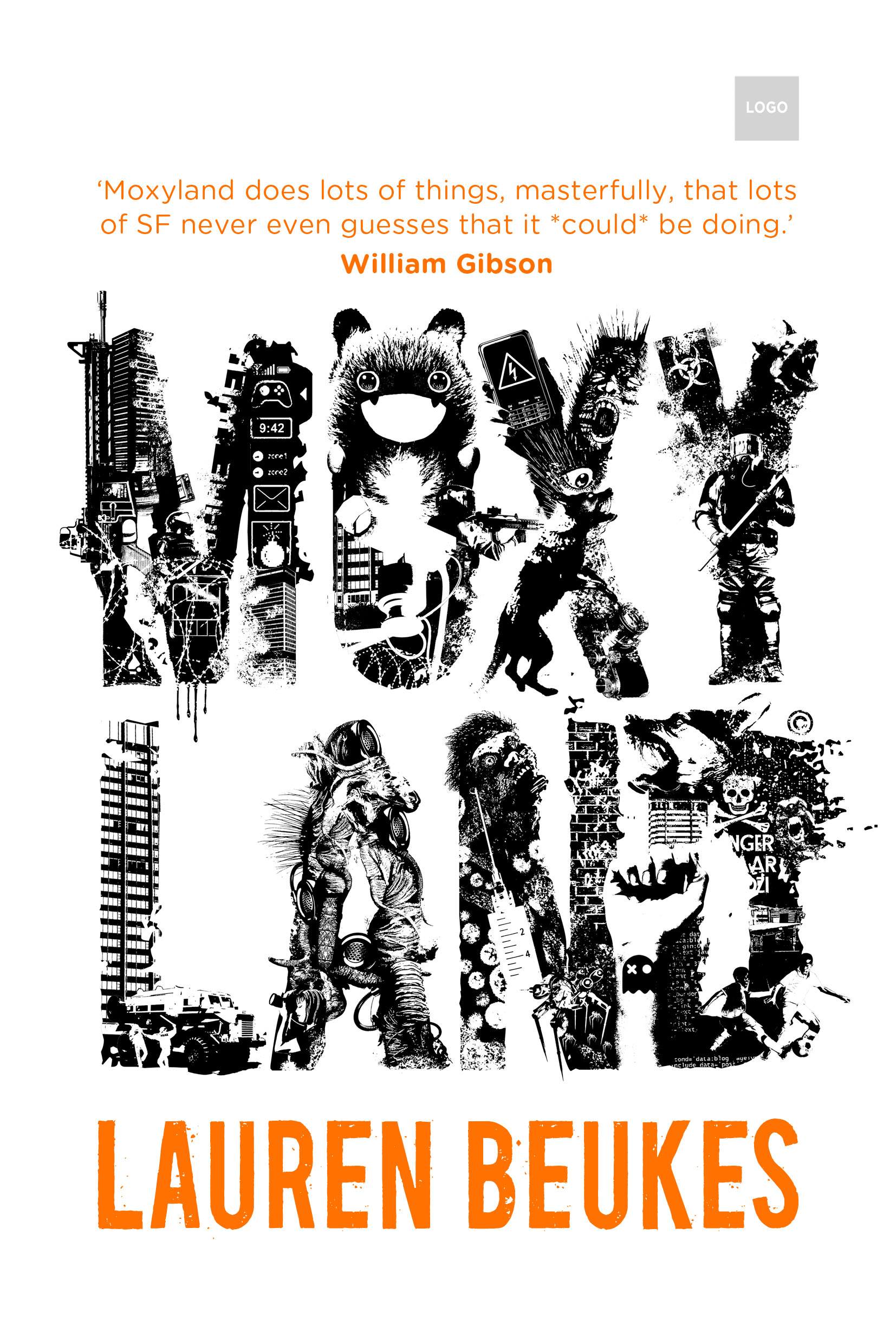
When Lauren Beukes is on point, she unsettles like few other writers. Her novel Zoo City is both metaphorically and literally terrifying. In it, animals become tethered to people because of guilt; separating the two leads to horrific, catastrophic events, and society becomes subtly and bleakly changed as a result. The Shining Girls brought together the story of a time-traveling serial killer with a resonant portrayal of Chicago in the 1990s. I haven’t yet read her new novel Broken Monsters, but a number of smart readers I know have said good things; I’m eager to check it out.
So: I picked up a new edition of her first novel Moxyland a little while ago, and sat down with it earlier this week. It’s a science fiction novel, set in the very near future; it’s told by four narrators, each of whom has reacted in a different way to the corporate saturation around them. A talented artist elects to undergo a sponsorship under which her health is enhanced in exchange for a permanent brand and a craving for a the soft drink that’s sponsoring her; activists of differing levels of commitment strive against the established order, but clash as to the best tactics to use. Initially, it isn’t clear where the plot is going, and that’s intentional: what may seem like random actions at first turn out to have more sinister consequences.
The characters in Moxyland share connections: some are lovers or ex-lovers; others reluctant allies or wary ideological adversaries. And throughout, Beukes warns of the consequences of the creeping corporatization of culture: there’s a level of barely restrained anger running below the surface here that suggests George Saunders, both in the level of outrage and the level of control. Thought-provoking, thrilling, and sometimes skin-crawling, this is a fine example of socially-aware science fiction. (Of science fiction, period.)
I wrote a little bit about Jac Jemc’s A Different Bed Every Time in Vol.1’s October books preview, but I figured I’d mention it a bit here as well. I quite enjoyed her novel My Only Wife for how it balanced the story of a unique marriage with questions of the narrator’s reliability or fallibility–it’s one thing to have an unreliable narrator, but it’s a whole other achievement to have a narrator who doesn’t quite get something but may not be wrong about other things. These stories combine that balancing act, but expand their focus to show the (flawed) dynamics between families, lovers, siblings, and more. They’re written with style, and can both impress with their dexterity and bowl one over with the observations they contain.
Earlier this year, I wrote a blurb for Alexis Coe’s Alice + Freda Forever: A Murder in Memphis, and now that it’s out, I figured that I’d post something about it here as well. (With the disclaimer that, hey, I blurbed it.) It’s a nonfiction work telling the story of the relationship between two young women in late-19th century Memphis, and how it went horribly wrong. Illustrations are utilized interestingly, and the whole thing is both informative and relentless in showing the constraints on gender, race, and sexuality in the society of the time.
Follow Vol. 1 Brooklyn on Twitter, Facebook, Google +, our Tumblr, and sign up for our mailing list.

